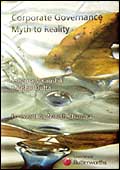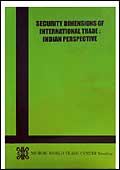|
|
|
By the people, of the people,
and for the people: In India, no issue is too small
to be taken to the streets
|
Indians
love to argue. Take our television channels, for example. They
have built popular shows out of half-hour or one-hour public debates.
Outside of the TV studios, walk by a tea stall, a street corner,
or even a public park. You'll invariably find groups of people
debating one issue or another: It could be the floods in Gujarat,
Delhi's Metro, or the controversial community action in the shameful
(alleged) rapes of Imrana and now Asoomi. What's most significant
about this wonderful freedom of speech is that it is not the preserve
of any single class or community. While the elite and the intelligentsia
may dominate public opinion by virtue of controlling media, they
by no means represent the popular opinion. Nowhere is this truth
more evident than at the hustings, where poll projections are
routinely way off the actual outcomes.
It is this India-where a billion opinions
tug, push and jostle, sometimes violently so, but always within
the framework of democratic traditions-that interests Amartya
Sen. The Argumentative Indian, though, is not one long stream-of-consciousness
narrative from Sen, winner of the Nobel Prize for economics in
1998. Instead, it's a collection of essays that he penned over
the last decade. In his preface to the book, Sen explains his
choice of the essays. "The selection of focus here,"
he writes, "is mainly for three distinct reasons: the long
history of the argumentative tradition in India, its contemporary
relevance, and its relative neglect in ongoing cultural discussions."
|
|
THE ARGUMENTATIVE INDIAN
By Amartya Sen
Allen Lane (Penguin Books)
PP: 432
Price: Rs 650
|
Despite the subject's sharp focus, it's a
broad brush that Sen uses to portray the country's argumentative
psyche. He starts by examining the nature and pervasiveness of
the dialectic tradition and the role it plays in not just maintaining
but enriching the country's democratic fabric. The essays in the
middle of the book are devoted to understanding how free speech
shapes cultures, while those towards the end are broadly about
how Indians are perceived by themselves and others.
Reading Sen's essays, one can't help but
feel that Indians, despite their long history and rich tradition,
have undersold their culture. Language, no doubt, has been a factor,
but a bigger reason, as Sen points out, could be our enthusiastic
willingness to see things from a "western" perspective.
(The stick with which we were beaten into cultural subservience
is, of course, the near-100-year rule by Britons, who, it can
be argued, irreparably damaged the Indian self-confidence, if
not pride.) In doing so, Sen seems to imply, we have fallen for
the Western conspiracy. "One consequence of Western dominance
of the world today," writes Sen in the essay entitled 'The
Reach of Reason', "is that other cultures and traditions
are often identified and defined by their contrasts with contemporary
Western culture.... The West is seen, in effect, as having exclusive
access to the values that lie at the foundation of rationality
and reasoning, science and evidence, liberty and tolerance, and
of course rights and justice."
The Argumentative Indian, then, is not just
the reflections of one of the finest minds in the world today,
but also a compelling reminder to the world of what makes India
a vibrant democracy-despite its ragged poverty and seeming inertia.
Sen's anthology is essential reading for anybody who hopes to
understand India.
|
|
CORPORATE GOVERNANCE MYTH TO REALITY
By Kshama V. Kaushik and Kaushik Dutta
LexisNexis Butterworths
PP: 257
Price: Rs 600
|
Ever since corporate
America erupted in a wave of accounting scandals a few years ago,
corporate governance has been the most hotly-debated topic in
boardrooms. Corporations now realise that enhancing shareholder
value isn't their only responsibility, protecting stakeholder
(meaning customers, suppliers and the society at large) interests
is as important. Small wonder, then, the subject of corporate
governance has been controversial, both in India and abroad. The
book, penned by a husband-and-wife team of chartered accountants,
not only looks at the initiatives of various governments to improve
the quality of financial reporting, setting of accounting standards,
transparency in disclosures, but also the tasks before independent
directors and audit committees.
Dutta and Kaushik (the former is a partner
at Pricewaterhouse) raise some important ethical questions that
must confront every CEO. For example, "Does Good Governance
Translate into Better Business Sense?" The authors argue
that although there is no clear correlation between ethical behaviour
and better business (read: bottom lines), it still makes sense
to be ethical. To reinforce their point, they cite a PricewaterhouseCoopers/Economist
Intelligence Unit study, which shows that companies with better
governance tend to perform better-in the sense that they have
a higher return on assets and higher market valuations. Better
financial performance, in turn, makes it easier for them to fund
their operations. In hindsight, good corporate governance must
seem like a no-brainer. But it has taken a wave of accounting
scandals to galvanise corporates into doing something about it.
-Ashish Gupta
|
|
SECURITY DIMENSIONS OF INTERNATIONAL TRADE: INDIAN
PERSPECTIVE
By MVIRDC World
Trade Centre
Quest Publications
PP: 92
Price: Rs 300
|
Ever thought
that endemic poverty in any part of the world could be a ticking
security time bomb for just about any country across the globe?
Or how 9/11 impacted trade costs between India and the United
States? Or security implications of India's large dependence on
imported oil? These are exactly the issues that Security Dimensions
of International Trade: Indian Perspective attempts to raise in
the context of India's growing trade in goods and services.
The author, Professor Bisweswar Bhattacharyya
(former dean of IIFT but now an academic at large) offers a simple
reason why nations need to pay greater attention to trade security.
He argues that peace and stability are what oil the wheels of
global trade. Without them, costs for all countries would go up
and, inevitably, impact world growth-like in the aftermath of
9/11. The book is less than 100-page big, but that's no indication
of the rich information it packs in.
-Shailesh Dobhal
|







